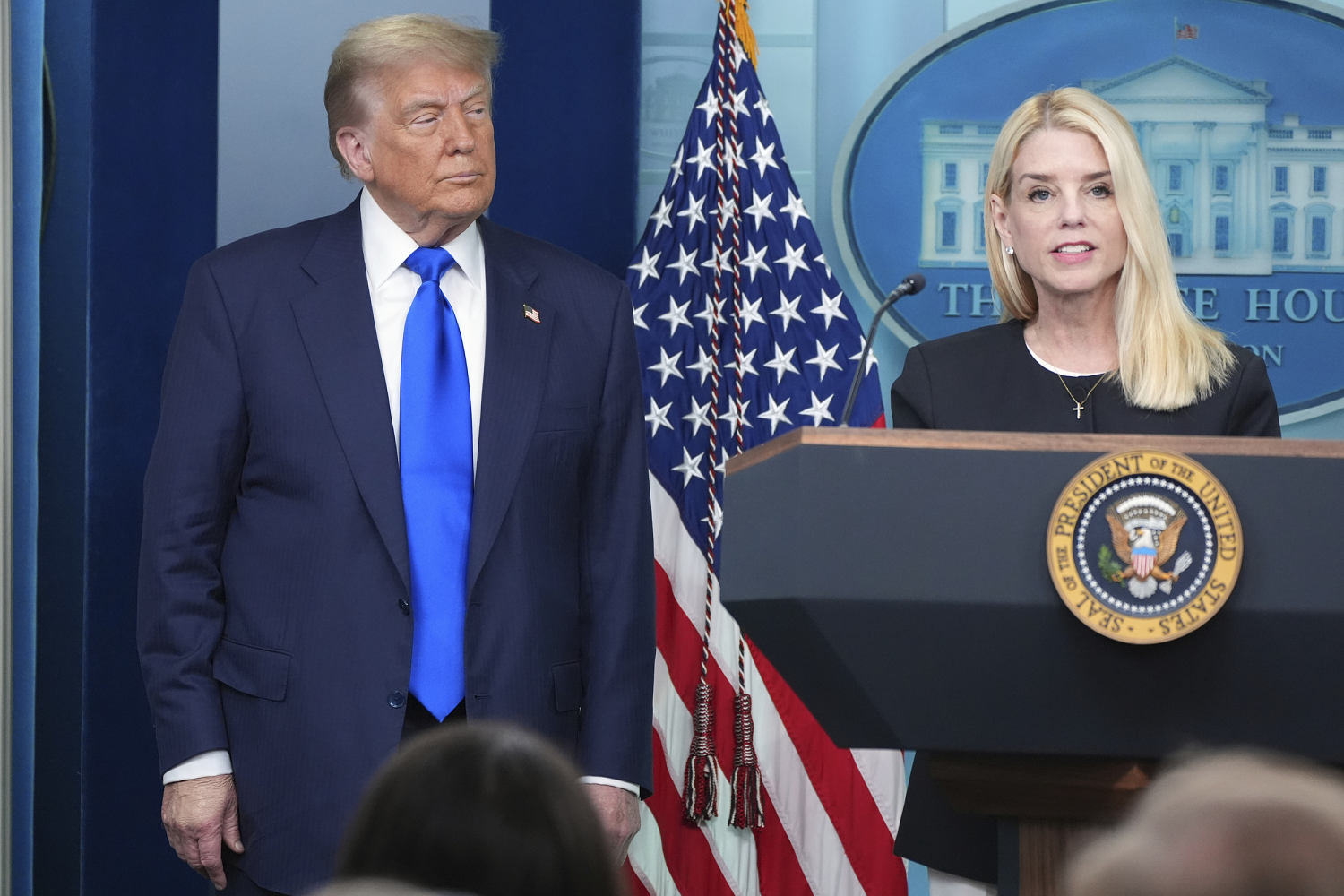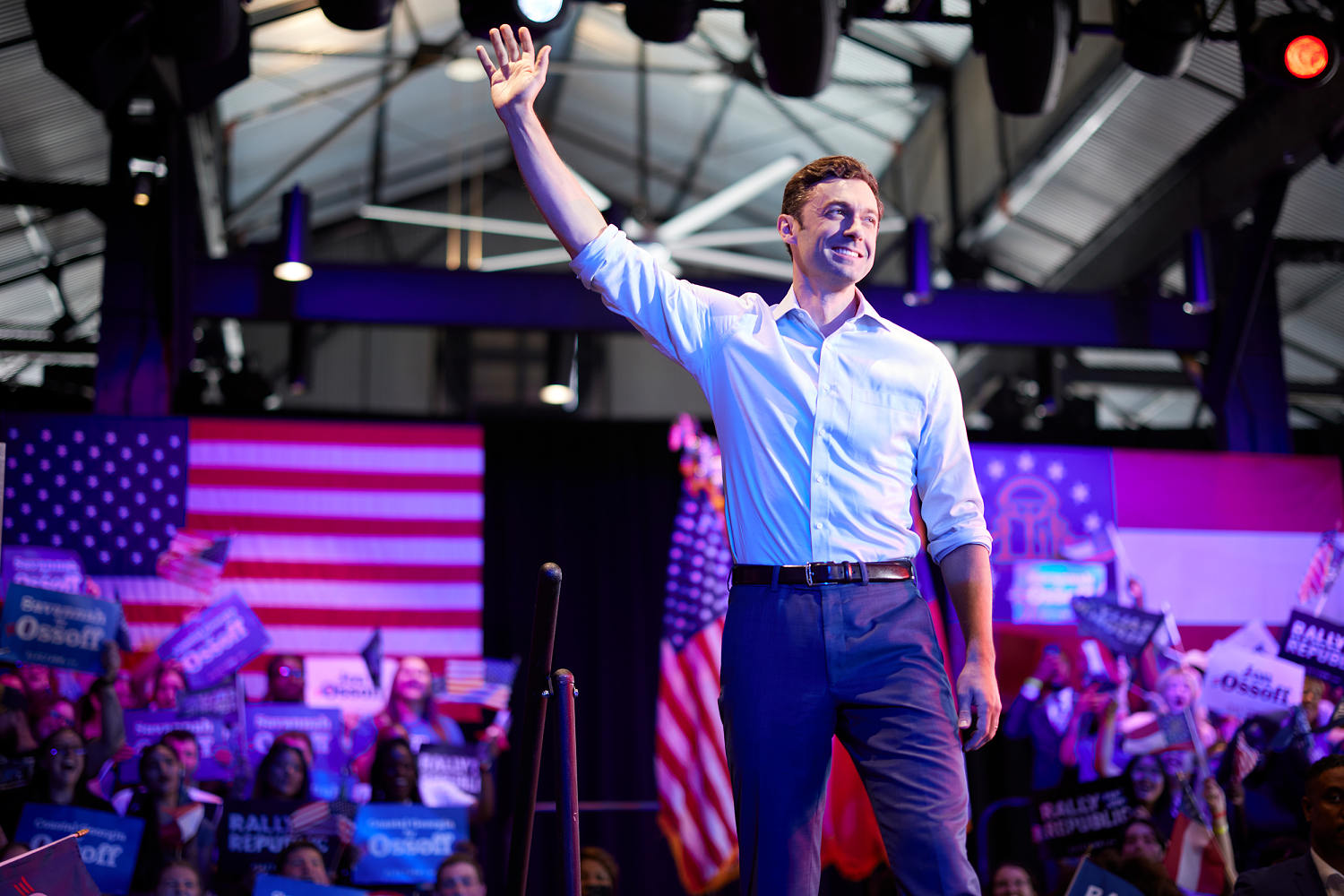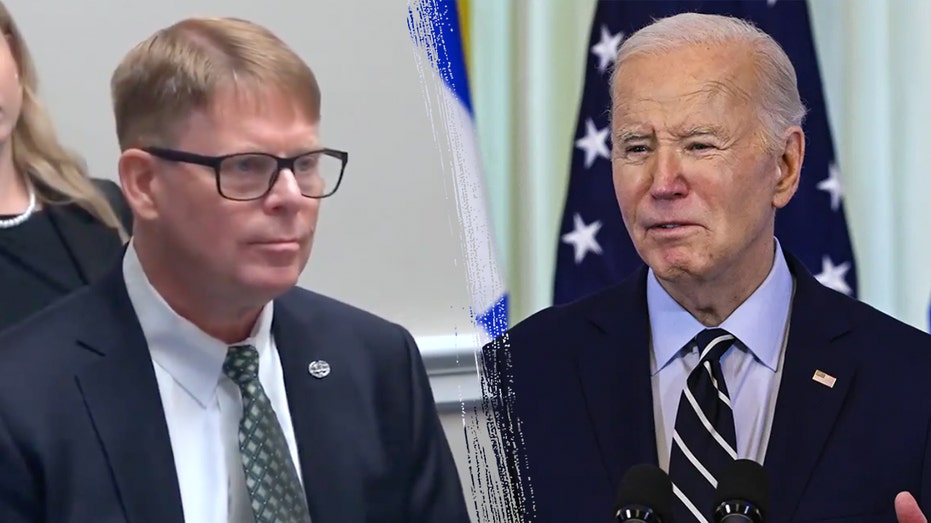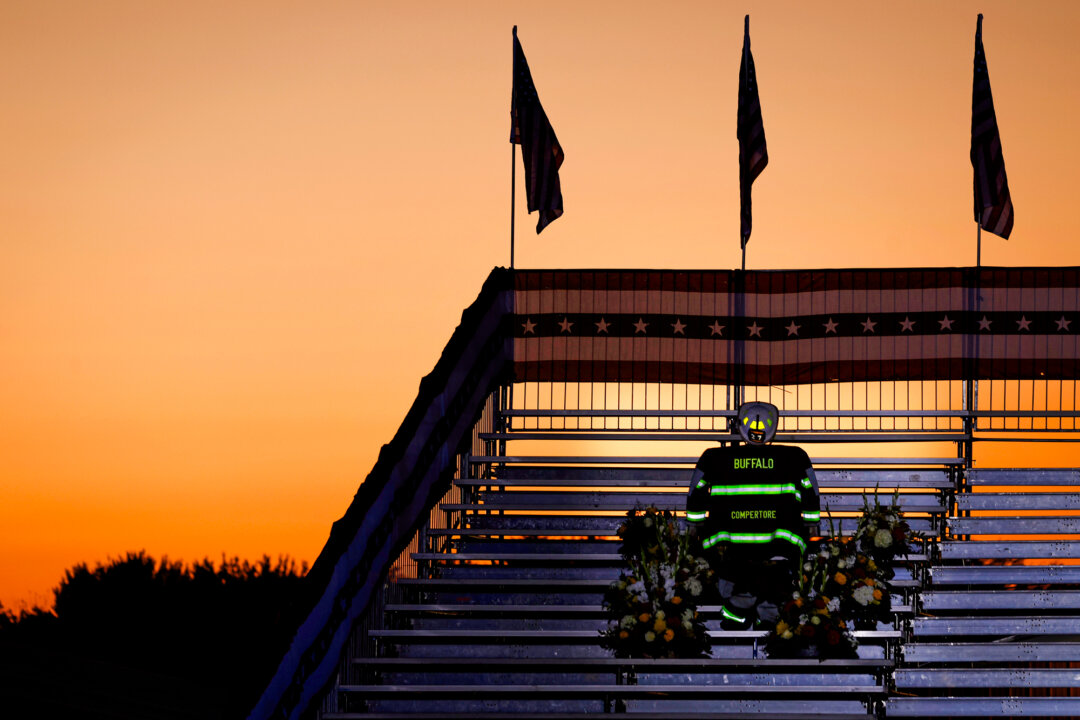Sviatlana Tsikhanouskaya, an opposition leader in Belarus, hadn’t heard from her husband Siarhei in more than two years. Not since Belarusian authorities placed him in “incommunicado” detention, in full isolation. And then he called her.
“My dear wife,” he said. “I’m free.”
He had been released from prison after negotiations between authoritarian leader Alexander Lukashenko and Trump administration officials, and was at the border between Belarus and Lithuania. He and 13 other political prisoners were heading to the American embassy in Vilnius.
Tsikhanouskaya and Siarhei have since reintroduced him to their children, traveled to a solidarity rally in Poland and done interviews with major news outlets. But both Tsikhanouskaya and her husband, a blogger and political activist who was preparing to challenge Lukashenko in Belarus’ 2020 election when he was imprisoned, are grappling with the opposition’s role in what comes next.
In an interview with POLITICO Magazine, Tsikhanouskaya described the joy of finally reuniting her family even as she said there was far more work to be done. She also made clear that a certain peace-seeking president could help her cause.
“We ask President Trump, go further, free them all,” she said. “Use your influence again. We believe that you can do this, and Belarusians will never forget it.”
The administration’s efforts in Belarus come as Trump continues to search for an end to Russia’s war on Ukraine, and as Lukashenko looks for a means to end the political isolation his relationship with Vladimir Putin has wrought.
Along with freeing more political prisoners, Tsikhanouskaya is desperate to make sure Belarus isn’t pulled further into Russia’s orbit as part of negotiations to end Putin’s war.
This conversation has been edited for length and clarity.
When did you know that your husband Siarhei would be freed?
The moment when I understood that he was free was when he called me from the border, just a direct call, and I heard his voice, and he told me, “My dear wife, I'm free.” I could hardly believe this, because I was sure that he would be one of the last who would be released from prison, but who understands the logic of this regime? We had several lists of people to be released, humanitarian lists where people who were about to die were there and people who were incommunicado, some others. They chose Siarhei, I don't know why.
A lot has been made of the term “incommunicado.” What exactly does that mean in the context of Belarus?
Incommunicado means that a person is kept in full isolation. Since March 2023, more than two years, we lost full connection with Siarhei. A lawyer wasn't able to attend to him. Letters were not received from my husband. Nothing. Just forced disappearance. And we have eight people at the moment on this list, and I wasn't sure if he was alive, what prison he's kept in, what state he's in. The regime is doing this to blackmail relatives, put a burden on the shoulders of their relatives. This knowing nothing about people is, of course, very, very painful.
Can you speak to what it was like to see Siarhei for the first time post-prison sentence?
It was, it is now, shocking to see him in such a state. He lost half of his weight. He says that for the last couple of months, they even gave him additional portions of butter, cottage cheese. When he got out of the minivan, I knew that he would be there, but if I had seen him somewhere else, I wouldn't have recognized him. And when he returned home, our young daughter didn't recognize him at all. I said, “Dear, look who came?” And she just said, “Hello, who are you?” And when he started talking, she just recognized his voice. Of course, there were oceans of tears, hugs, but prison changes people a lot. It's like gray face, like very skinny people.
It's difficult to see, but the physical state, maybe it's possible to improve somehow. But all those memories from prison, the emotional trauma, psychological trauma, it will not be able to be softened.
Has it set in that he’s back? How has it been to have him back in the movement?
The release of Siarhei, it's brought a boost of energy to the Belarusian people, first of all. It was such news for people. And he's full of energy. For five years, he was thinking about new ideas, new projects, how to change the situation in Belarus. And now we have to use this momentum to direct more attention to the topic of Belarus, to the topic of political prisoners and the country’s political disaster.
So, on the one hand, as a wife, I want to take care of him, I want him to relax a little bit. But on the other hand, I understand that he has to jump into the agenda. He's given so many interviews now, so many people want to meet him, to see him, and we have to use that momentum. And he's still realizing what has happened in the democratic movement. But, for sure he will join this movement as a strong speaker, as a leader, just to try to mobilize the energy of Belarusians.
Five years [since an anti-Lukashenko protest movement was violently quashed and Siarhei was first jailed], and people are exhausted. You know, people continue to fight. We are working on different projects in coordination with the people on the ground, but somehow people are losing, step by step, the energy. And he's a driver who can really, really attract attention. So Siarhei will focus on building new channels of communication with the workers, rural communities, entrepreneurs, officials. His voice is powerful and he speaks the language of people. Many Belarusians watched his first press conference, it gave maybe people inside the country new hope. Many people who believed in 2020, and were silent for five years, are active again.
Switching gears to politics — are you worried at all that the Trump White House might be legitimizing Lukashenko by negotiating with him on the release of political prisoners?
So first of all, President Trump really made a difference. His team — Gen. Keith Kellogg, John Cole, Chris Smith — took real action and it worked.
Trump has shown that diplomacy and pressure can bring results. He has leverage in the situation of Belarus and he used it. Now, we must maintain pressure on the regime. We have seen that the pressure works, and it is the most effective tool. I think that actually Belarus can be President Trump's foreign policy success story — a place where American leadership ends a crisis without war. It can be a victory that the world will notice. And we ask President Trump, go further, free them all. Use your influence again. We believe that you can do this, and Belarusians will never forget it. It was American diplomacy and mission that rescued this group of people. But for sure, without the strong and principled and firm position of the European Union as well, it wouldn't have brought this result. So again, President Trump can solve the crisis in Belarus, which lasts 30 years already, and it must be easier to bring changes to Belarus than to Russia.
Of course, there is gossip that this visit of Gen. Kellogg might look like legitimization of the regime, but I trust that our American partners know who they're dealing with. And it was President Trump, actually in 2020, who didn't recognize the legitimacy of Lukashenko. They understand that Lukashenko is a criminal, he committed crimes against Belarusians, he is a war criminal. And he has to be brought to accountability for all the crimes.
But nevertheless, for Lukashenko this meeting is more important than it is for the Americans, because he's seeking legitimacy. He's seeking to show the world that “Look Americans themselves listen to me, I'm important.” But Americans understand that he's playing on the side of Putin in this game, that he is not an independent player.
What would you like to see President Trump do in Belarus?
We understand that President Trump wants to end the war in Ukraine and this is why Belarus might be a topic for negotiation as well. For us, it's very important that the peace in Ukraine that President Trump wants to achieve must be lasting and just. It must be on the conditions of Ukraine. We can't reward the aggressor. There cannot be peace without justice, and the Belarusian topic is existential here because if Lukashenko stays in power in Belarus, there will no longer be a possibility to secure peace in the whole region.
So we want President Trump to continue first of all releases, but also continue this communication through the State Department with the Belarusian Democratic Forces, and bring changes in Belarus that will actually change the security architecture of the whole region. So, continue this humanitarian track and also push Lukashenko and his regime on their path of national dialogue with Belarusians.
America can play this very strong mediation role between the Belarusians and the regime. Because again, I want to underline that Lukashenko wants negotiations with the USA or with the West, possibly with the European Union, but we need systematic changes. We want Belarusian people to return to Belarus, where they will not be prosecuted. We want to write our constitution so that it works for Belarusian people. The aim is much broader than the release of political prisoners, though that is our priority.
Are you worried that the Trump administration may be giving Putin and Lukashenko too much credit in its bid to end the war? Is it too transactional?
Of course, you know President Trump's politics, we see it is rather transactional. But maybe it's not about credit, it's about giving a chance to Putin, maybe to Lukashenko, to change the situation that will meet the demands of Ukrainians and Belarusians. We already saw that President Trump met President Zelenskyy during the NATO Summit and it was a very pleasant conversation. And I think that there was disappointment in Trump's administration that Putin doesn't want to make any concessions.
What advice do you have for the Trump administration as it embarks on negotiations and attempts to improve relationships with Minsk?
We must not normalize the trafficking of political prisoners, when people are released for some concessions from your side, softening of sanctions or publicity. And then new political prisoners are taken. Lukashenko has to be punished, not rewarded.
What is a realistic path forward for getting Belarus’ political prisoners freed with American coordination?
There’s a big chance to release all people from prison. But the issue is what the regime wants in return for this. We always say that sanctions are the leverage to release people, but we have to use this leverage smartly. If we don't see any signs that repressions are stopped, this instrument cannot be used.
Because 14 people have been released but [in June], 28 were detained. When we see a change of policy by Lukashenko, that he's ready to stop these repressions and make steps forward toward the Belarusian people, it might be a signal that you can talk about lifting of sanctions. But again, don't, forget that we have more leverage with European sanctions. Of course, the actions have to be coordinated. And there should be no pressure, for example, from the American side to the European side. The main message is that sanctions as instruments have to be used smartly.
We can’t even speak about softening sanctions now, while repressions continue and with more than 1,000 behind bars. The first condition — ending repression — must be met. And I am sure President Trump, with all his power, can achieve it. Like the release of my husband — it happened without lifting any sanctions.
.png)













 English (US)
English (US)